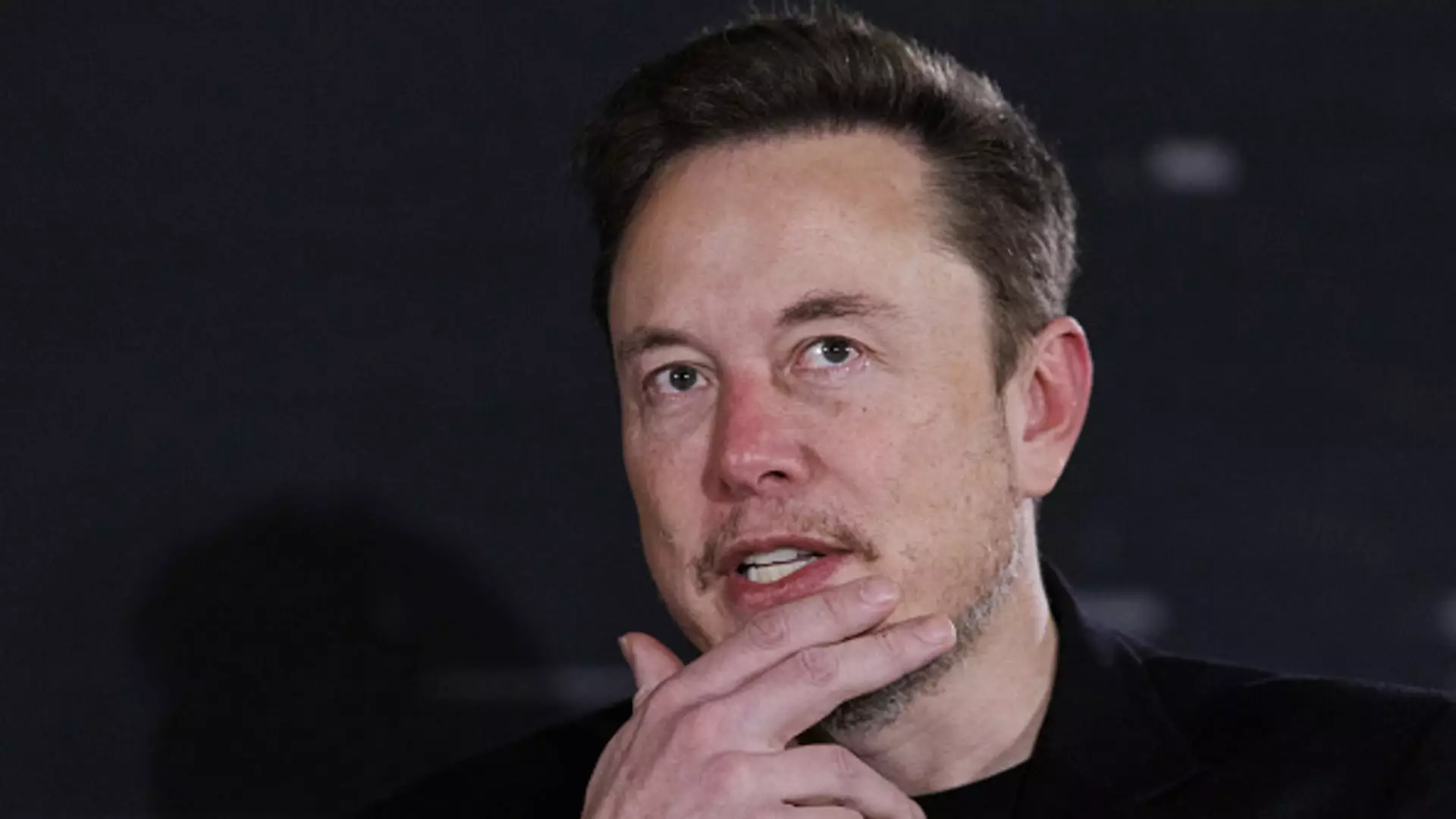In a surprising move, Elon Musk, the CEO of Tesla and SpaceX, expressed his desire to gain approximately 25% voting control over his electric vehicle company. This announcement comes after Musk already owned around 13% of Tesla, which accounts for roughly 411 million shares out of the company’s 3.19 billion outstanding common stock shares. This significant stake is worth noting, especially considering that Musk previously sold billions of dollars’ worth of Tesla shares in 2022 to fund a $44 billion leveraged buyout of Twitter. Now, Musk is striving for even more control over Tesla, as he believes it is crucial for the company’s progress in AI and robotics. He explained on his social platform X, “I am uncomfortable growing Tesla to be a leader in AI & robotics without having ~25% voting control. Enough to be influential, but not so much that I can’t be overturned.” However, this statement appears to contradict his earlier claims about Tesla’s role as an AI and robotics company.
Notably, Musk previously emphasized the importance of AI and robotics for Tesla’s success. During Tesla’s first-quarter earnings call in April 2022, he predicted that the company’s humanoid robot, Optimus, would surpass the value of the car business and even full self-driving capabilities. Furthermore, Tesla unveiled an early prototype of Optimus at Tesla AI Day in September that same year to showcase the company’s expertise in AI, compute hardware, and robotics. However, Musk’s recent statements indicate a shift in perspective. On December 27, 2023, he criticized a research analyst’s comparison of Tesla to Japanese automaker Toyota and argued, “He has the wrong frame of reference. Tesla is an AI/robotics company.” The inconsistency in Musk’s narrative raises questions about Tesla’s true focus and strategic direction.
While Musk’s ambition for voting control adds pressure to Tesla’s board of directors in 2024, they already face various issues that demand attention. One concern is Musk’s divided attention as he simultaneously manages SpaceX, X Corp., and other ventures alongside his role at Tesla. Some investors and lawmakers worry about the use of company resources and the potential impact on Tesla’s operations. Additionally, Musk’s controversial political and cultural commentary, including tweets that disparage corporate diversity and inclusion initiatives, has sparked further criticism. Furthermore, ongoing federal investigations involving both Musk and Tesla have raised eyebrows among investors. Recent reports in the Wall Street Journal have also raised concerns about Musk’s alleged drug use. Moreover, Musk is currently facing a trial in Delaware over his previous $56 billion compensation package from Tesla, which some shareholders argue was excessive and breached fiduciary duty. The outcome of this trial may have significant implications for Musk’s future compensation and influence within the company.
Musk’s quest to increase his control over Tesla comes at a critical time for the company. Despite Tesla’s last financial filing showing that approximately 95% of its revenue came from the automotive segment in 2022, the company’s third-quarter 2023 filing emphasized its growing focus on AI, robotics, and automation-based products and services. Musk’s commitment to this technological transformation is evident through his recent social media posts, including a video clip showcasing the development of the Optimus robot folding laundry. Although the robot was operated remotely rather than autonomously, the demonstration showcased Tesla’s ambitions in the AI and robotics space. However, with Musk’s push for more voting control, the board of directors must weigh the potential benefits and risks of granting him greater influence. Striking the right balance between leadership and accountability will be crucial in navigating Tesla’s future trajectory.
Musk explained the rationale behind his desired 25% voting control, stating that it would allow him to exert influence while still being vulnerable to being overridden by shareholders. He argued that a lower ownership percentage would make a takeover by “dubious interests” too easy. However, this request raises concerns about corporate governance and the potential impact on decision-making processes within Tesla. Granting Musk such a significant stake could concentrate power and limit the voice of other stakeholders, including institutional investors. Striking a balance between Musk’s vision and the need for transparent corporate governance will be crucial in maintaining Tesla’s credibility and stability.
As Musk awaits the verdict in his Delaware compensation case, the board of directors faces the challenge of developing a new compensation plan while navigating existing controversies. Musk’s desire for greater control puts additional pressure on the board, which must carefully evaluate the long-term implications of accommodating Musk’s request. The outcome of these deliberations will undoubtedly shape Tesla’s future and determine the company’s ability to continue its technological advancements in AI and robotics.
Elon Musk’s desire for 25% voting control over Tesla signifies an important turning point for the company. Despite previous claims about Tesla’s place as an AI and robotics leader, Musk’s recent statements highlight inconsistencies in the company’s narrative. As the battle for influence unfolds, Tesla’s board of directors must carefully consider the implications of Musk’s request and navigate the various concerns and controversies surrounding the company. The decisions made in the coming months will shape Tesla’s future trajectory and determine its ability to lead the market in the rapidly evolving field of AI and robotics.


Leave a Reply